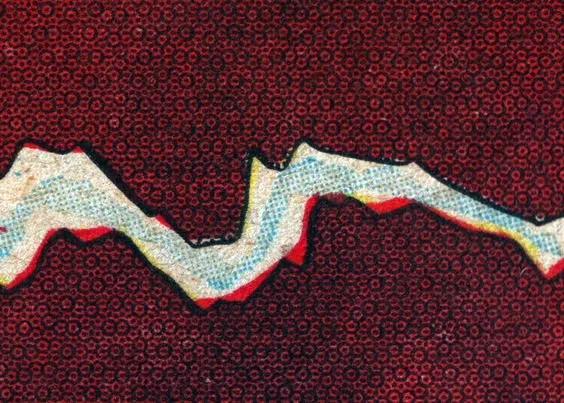The Death Drive of Short-Form Content
1.
How do you describe that feeling of lying in bed and just waterboarding yourself mentally with the visual spectacle that is short-form content. TikTok, Instagram Reels, and YouTube Shorts all function in this atemporal state in their consumption. Wish there was a word for it, as it seems akin to a non-pornographic version of gooning. This descent into the short-form entertainment trance. This trance that only after, when you seek to notice what you just did, patting your pockets to confirm if your wallet and phone are still there, you realize something more intangible was taken. Something no wallet can buy back. This corrosive willing engagement with short-form content, which we all understand as unhealthy; no one feels good coming out of the trance. It is self-immolation on a mental scale, time goes by, thoughts don’t come, and you willingly surrender your life to an extent. All for what?
The feeling when consuming reels or TikTok has you acting like an explorer looking desperately for something they don’t know or even understand. It’s a chase for a feeling, scrolling and skipping until something scratches an unscratchable itch, an itch only the perfect entertainment can scratch. And once you do get something you spent mountainous atemporal minutes searching for, you want more. It is a sip of cold water for your unquenchable thirst, a teaspoon amount will not satisfy.
How do you become satiated by entertainment? Do you feel full after a certain amount of media consumption? It’s not feeling full as much as it is feeling shame at how much time you’ve wasted, how much of a degenerate you’ve fallen into. Nothing but a void in your stomach of the moments wasted, which stack up over time cascading a wave of shame that does more to fuel future consumption than changing your now ingrained behaviors. Only when shame overpowers the exploratory desire to consume more can the process stop. When you feel sick at yourself, ashamed at your actions. A post-Reels clarity. This desire is all wrong, the desire can’t be sated, your self-prescribed medicine not capable of administering a cure to the inflammation.
2.
I feel this when I see someone over the age of 40 using TikTok or watching YouTube on public transit. It dejects me so completely, in such a self-centred way, I guess. Someone’s poor mother or grandparent, just so beaten down by everyday life. And then who am I to criticize a brief moment of respite from their exploited workplace and existence? And who am I to speak of the actions of those older, carrying their Promethean-weighted blankets of responsibilities I can’t comprehend? I don’t blame individuals, understanding the ways people spend those liminal moments in transit, resting and recovering from the burdens of life of Han’s Burnout Society. But the way he interprets the exploitation of capitalism to be enacted also on a deeper personal level, where we leverage and masochistically sacrifice sleep, hours, recreation of ourselves for the pursuit of success. The pursuit of survival, in a society meant to choke the spirit and drive out of you.
Short-form content is the most insidious media predator, a mold seeping through cracks taking any time it can get from those who use it. The slappable bandage that’s right there on your phone a tap away. The gateway drug to passivity and inactivity, casting you towards numbness and stasis. The audiac drilling you till your eyes pop out of your head, comatose in your bed.
3.
Consuming short-form content is a process of self-harm. Drawn-out long-form suicide, via short-form bursts of unfeelable pain. And it only becomes and radicalizes into a subconscious want to self-harm once that shame is felt. I’m not saying that consuming short-form content en masse wants to make someone self-harm, but it’s similar almost to the habits of gambling and smoking, the act itself is the small act of self-harm. Just cause the violence is not visible, instead hidden, does not mean violence is not enacted on yourself. Even without that feeling of shame and consumption it has a negative effect, whether it is attention span, or all the other multitude of ways which the medium massages you into the ideal user of YouTube Shorts, and/or its other harmful cousins.
I want to tie to this Kurt Vonnegut’s quote:
“The public health authorities never mention the main reason many Americans have for smoking heavily, which is that smoking is a fairly sure, fairly honorable form of suicide.”
While honorable should not be looked at with rose-tinted lenses, what does that make someone who is spending hours and hours on YouTube Shorts? or TikTok? The medium of short-form content is the most shameful form of suicide. It is the slow death of your attention span, a slow death of your time, waving goodbye to your consciousness as you surrender fully to The Entertainment. What I feel is most valuable to take away is not necessarily the concluding point, but what it says about the underlying drive that is the cause of the act of harm. The act of self-harm. The fixation on the outcome of the act rather than the motivator beneath.
4.
And then there’s the comment sections:
You see the horrific reproduction derived by short-form content in the mimetic ways comment sections reproduce similar phrases, sentiments, and discourses. It’s all mimetic, it’s all homogenized and the same. The role of anonyminity is interesting in this, and it’s always insane to see the opposite when it happens on Facebook or Instagram. Someone's full name and family history being one click away and visible as they leave hate-filled-death-pilled threats to their fellow digital netizens online.
I click their profile, and you see a full life, a full life of friends, birthday wishes, childhood photos. And then you’re left strained and numb by the emotional whiplash of seeing their whole life sprawled out for you to view, as they call Greta Thunberg a marathon of slurs.
All brought to you by Social Media and the Internet.
And, now fully ecologically exacerbated by, the rapidly disruptive medium of short-form content. A teaspoon amount will not satisfy.

